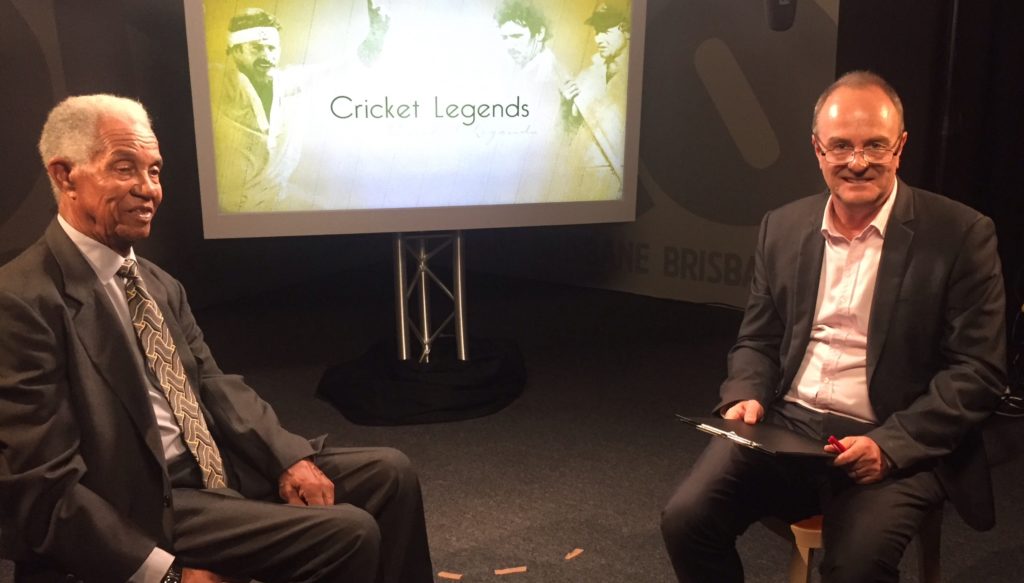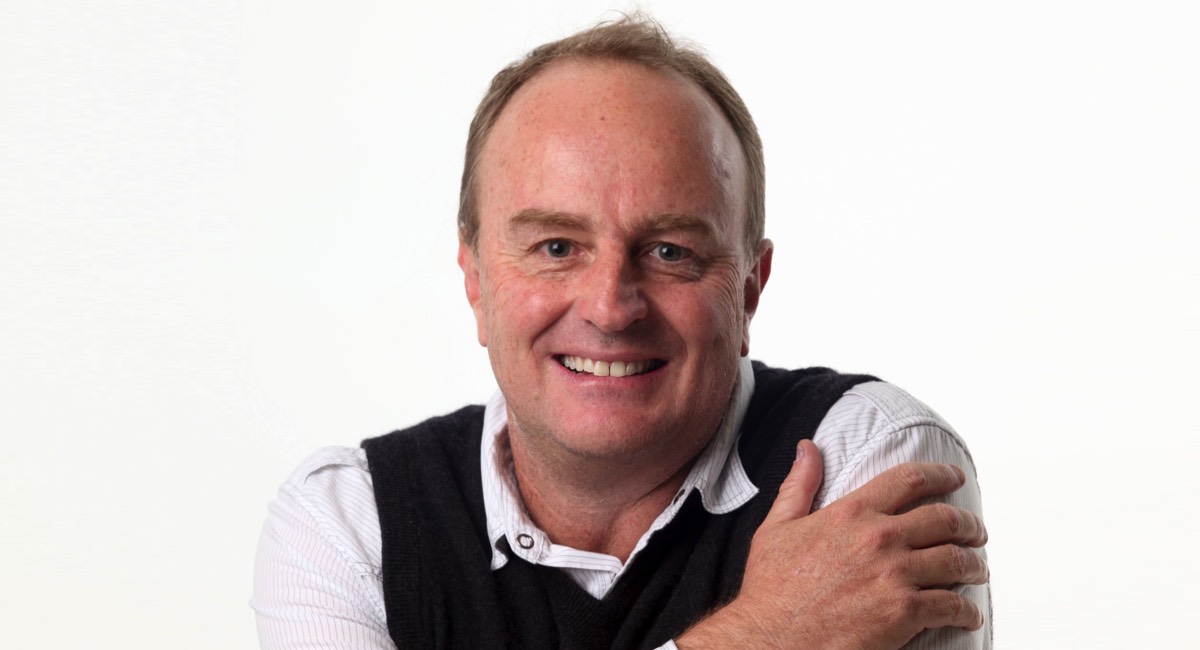Sports writing is what News Corp’s Robert “Crash” Craddock had always aspired to do. Now, nearly 40 years on since he got his first break in the industry that is exactly what he is known for.
“When I was a boy I visited The Courier–Mail. I was enchanted by the place. I didn’t realise many years later I would be working here,” Craddock told Mediaweek.
Based at The Courier-Mail in Brisbane, Craddock is well-known as the voice of cricket for the publisher. He also contributes to a number of Fox Sports’ NRL and cricket programs. Currently, he appears on Queenslanders Only and Back Page Line.
Craddock told Mediaweek he has a soft spot for both sports for different reasons.
“Cricket is my first love,” he said. “I was a News Limited cricket writer for 15 years, but rugby league is where I started.”
Australia’s expedition at the Champions Tournament taking place in England and Wales, which started at the beginning of June 2017, has hit several roadblocks. At the time of writing this article, Australia’s two scheduled matches against New Zealand (on 2 June) and Bangladesh (on 5 June) were abandoned due to rain.
With the start of the tournament, Fox Sports launched a dedicated channel at the end of May 2017 to cover all the action from the competition.
Asked if he is keeping up with the cricket, Craddock said: “I am watching it without having to type, so I concentrate more when I am watching it on the couch at home. I am not distracted by deadlines or anything else.”
With the unpredictable weather in England and Wales, Fox Sports runs repeats of Craddock’s Cricket Legends series to fill the rain breaks when the play is stopped. In the series, Craddock has spoken to some of the greatest names in the game including Jeff Thomson, Glenn McGrath, Garry Sobers and more. In the conversation with Mediaweek, Craddock revealed that it was initially meant to be a six-episode venture, which has now turned into a series with three seasons and 31 episodes.
“It’s not all about cricket,” Craddock said, stating that it’s more about knowing the people behind the cricketers. The series has allowed Craddock to straighten out some rivalries.
“There were some of the players who I have had difficult moments with like Mark Waugh when I was covering the cricket for News Limited,” Craddock revealed. “One of the interviews I was most pleased with was Mark Waugh, because during our careers there were times when Mark and I were fairly stridently on different ends of arguments. But he came into the Cricket Legends interview in a really great mood. He was upbeat and gave all he had.”
Despite having spoken to so many legends of the game, Craddock said there are still current and former cricketers who would make great talents for the show.

Garry Sober and Robert Craddock
Some people on his wish list include former Australian players Shane Warne, Adam Gilchrist and Ricky Ponting, former English cricketer and now broadcaster Michael Atherton and Nasser Hussain.
“Funnily enough it’s not just the big names that you think would be really good,” Craddock said. “I deeply regret not doing mystery spinner John Gleeson before he died.”
The tagline made famous by Wide World of Sport, “Summer of Cricket”, says a lot about the seasonal interest in the game of sports fans in Australia. This is not to say that fans would not tune in for cricket games during winter, but it may be tougher for the sport to attract eyeballs due to the competition from NRL and AFL.
“Champions Tournament definitely has to fight hard for its viewers,” Craddock agreed. “But Australian viewers don’t need much of an excuse to switch on the cricket.
“Cricket coverage on television constantly needs to challenge itself because it’s a very competitive market place out there. The Champions Trophy on Fox Sports can sometimes be competing with four other live sporting events, all on Fox Sports – never mind free-to-air.”
When Craddock started his career, he remembers that there were five daily print papers in Brisbane. Now, The Courier-Mail is the only daily print newspaper in the market. This really mirrors the struggle of print in the digital age, Craddock said. However, the transformation in the news landscape has brought some positive changes to the industry as well.
“More people are reading us more than ever. It’s a combination of print and online, though. The main thing is that the paper never sleeps. Any good story can be filed at any hour of the day,” Craddock said. “When I came here, the deadlines were pretty set in stone.
“Interstate papers would arrive in the office two days after they were printed. That’s when you found out whether you had a scoop or been scooped. [Laughs]
“In a funny sort of way there has never been a better time to be a sports journalist. Being involved with Fox Sports, doing the Cricket Legends series and stuff like that has really been the most thrilling thing I have done.
“But you can’t hide the fact that newspapers are doing tough. With Google and Facebook taking up 90 cents out of every dollar in advertising, it’s hard for everyone else. I still have faith though that newspapers have a few more good years in them yet.”
The hybrid nature of the media nowadays means that many print journalists also have spots on other mediums like TV or radio. The lines between sports reporting in print, radio or TV have blurred. A good example of this is that The Courier-Mail office in Brisbane is also the home of one of Fox Sports’ studios.
“When I started out, newspaper journalists were newspaper journalists – their worlds rarely collided with television. When one of our sports journalists at The Courier-Mail was on television, we would all rush around the TV, laugh and poke fun. It was such a novel event,” Craddock said. [Laughs] “Now it’s so common. There is never a week without one of The Courier-Mail journos being on Fox Sports.”
The nickname Crash
In his long career, Craddock has had many highlights. Along with them, he has also managed to acquire the nickname Crash after the singer Billy “Crash” Craddock. But Robert Craddock says he can’t make any claims of being a massive fan of the singer. “I can only sing a few bars of ‘One Last Kiss’ and a couple of lines from ‘Boom, Boom, Baby’,” he said. [Laughs]
The commentary lineup
Television and radio coverage of any sporting events tend to rely heavily on former players of a sport for its commentary. Craddock said that many great sporting journalists have missed out on the opportunity to call live games because “they are not international”.
“I look at other sports and I so admire Bruce McAvaney, Dennis Cometti, Tim Lane and Gerard Whateley. They are all journalists rather than players, yet they bring the best out of the players. That’s the best thing. They ask them relevant questions and they are up to speed on all the topics.
“I would love to see the ABC go after the cricket writer Gideon Haigh. I could sit and listen to him all day long – he so eloquent about the game.
“The best commentators bring humour and analysis. I think the best of the lot is Kerry O’Keefe.”
Asked if live commentary is something he would like to do, Craddock said, “I prefer the background stuff. I have done some live commentary before for various radio stations. While I enjoyed it, I prefer doing stuff like Cricket Legends, where you really get into the people and their stories.”
Access to players in cricket
Rugby league reporters Phil “Buzz” Rothfield and Andrew Moore have both said it is difficult for journalists to get access to players and that things could be better.
MORE: What’s The Buzz? Getting to know controversial NRL columnist Buzz Rothfield
MORE: Meet the voice of NRL on ABC Grandstand – Andrew Moore
Asked about the situation with cricket, Craddock said: “You have to accept that is the way world is and it won’t change. In the old days, you used to able to ring up Shane Warne in his room without even notifying the team manager. Teams didn’t even have a media manager. The players got a pretty good deal and so did the press. It just seemed to work, strangely enough.
“Everything is so formalised now. I would like to see it more relaxed, I really would. But coaches are paranoid about the players saying too much – it’s really sad actually. The players pay a cost for that. Michael Clarke reached the end of his career without anyone really knowing who he was. A part of that was because all the relations with him were so formal. He was on the one side of the table, while the journos were on the other. I didn’t like it at all.”
